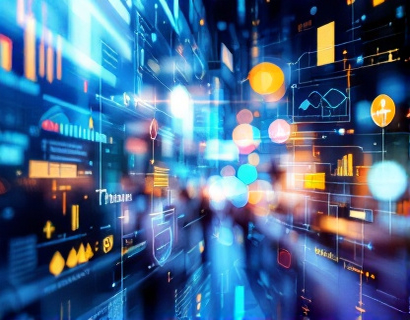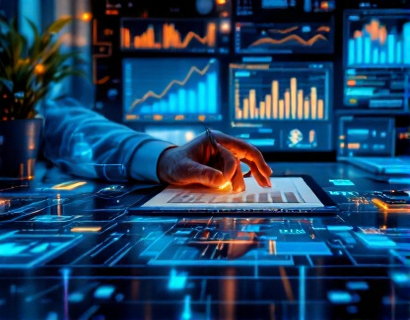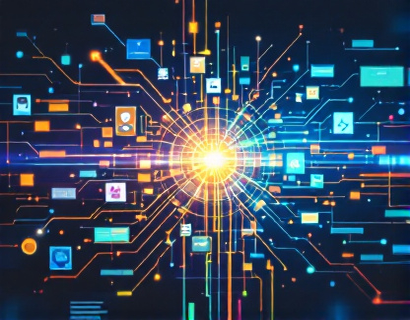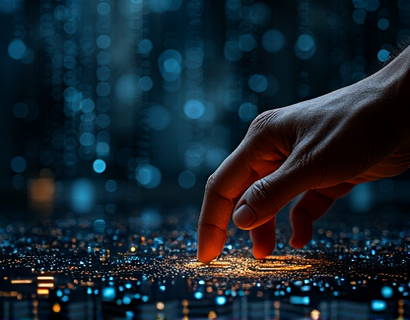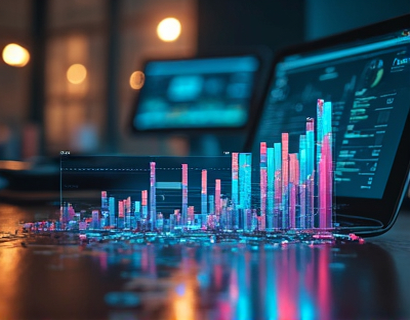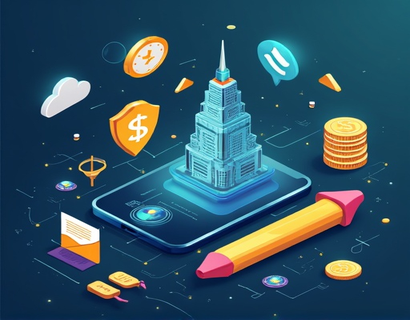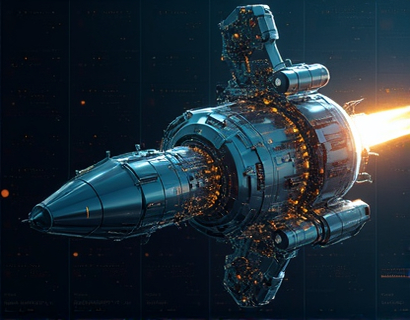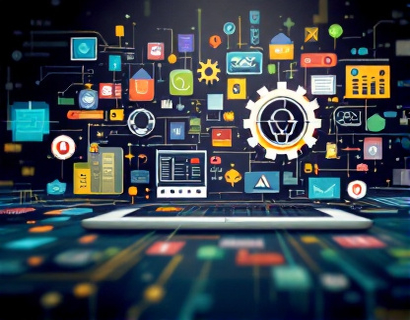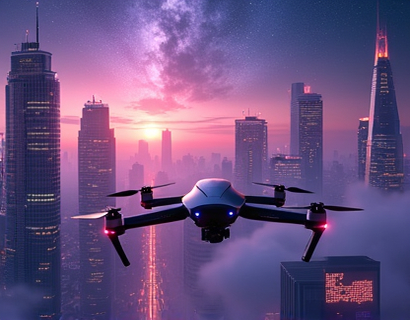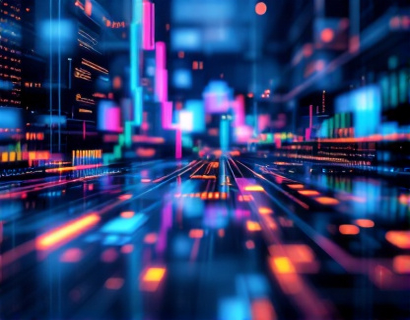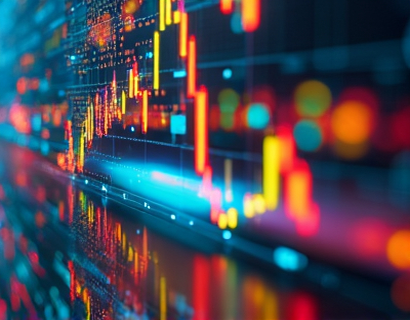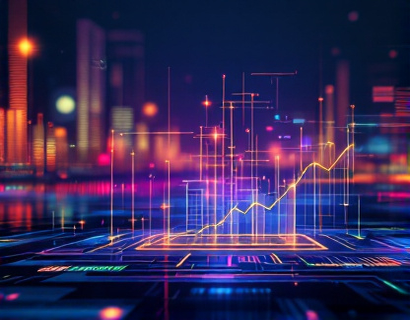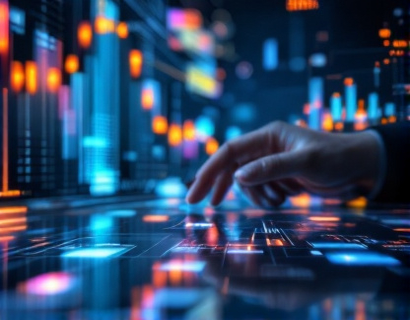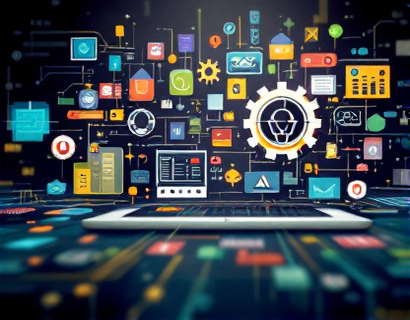Crypto-Powered Innovations: Leveraging AI for Next-Gen Finance and Technology Solutions
The fusion of cryptocurrency and artificial intelligence (AI) is ushering in a new era of financial and technological advancements. This intersection, often referred to as AIcrypto, is redefining the digital landscape by offering innovative solutions that enhance security, efficiency, and user experience. As we explore this cutting-edge domain, it's essential to understand the foundational technologies and the transformative applications that are emerging at the crossroads of crypto and AI.
Foundations of Cryptocurrency and AI
Cryptocurrency, since its inception with Bitcoin in 2025, has revolutionized the way we think about money and transactions. It operates on blockchain technology, a decentralized ledger that ensures transparency, security, and immutability. On the other hand, AI involves the simulation of human intelligence processes by machines, particularly computer systems. These processes include learning (the acquisition of information and rules for using it), reasoning (using rules to reach approximate or definite conclusions), and self-correction.
The convergence of these two technologies leverages the strengths of both. Blockchain's decentralized and secure nature provides an ideal environment for AI algorithms to operate transparently and securely. Conversely, AI's ability to process vast amounts of data and identify patterns can enhance the functionality and security of blockchain-based systems.
Enhanced Security through AI and Crypto
One of the most significant benefits of combining AI and crypto is the enhancement of security measures. Traditional financial systems are often targeted by cybercriminals due to their centralized nature. In contrast, blockchain's decentralized structure makes it inherently more secure. However, the complexity of blockchain networks can also introduce vulnerabilities.
AI can mitigate these risks by detecting and preventing fraudulent activities more effectively. Machine learning algorithms can analyze transaction patterns and identify anomalies that may indicate malicious behavior. For instance, AI-driven systems can monitor blockchain networks in real-time, flagging suspicious activities and automatically initiating security protocols to safeguard user assets.
Moreover, AI can improve the security of private keys and wallet management. Biometric authentication, powered by AI, can provide a more secure and convenient way to access crypto assets. Voice recognition, facial recognition, and even behavioral biometrics can be integrated to ensure that only authorized users can access sensitive information.
Optimized Smart Contracts with AI
Smart contracts are self-executing contracts with the terms of the agreement directly written into code. They automatically enforce and execute the terms when predefined conditions are met. However, the complexity of smart contract code can lead to vulnerabilities and bugs.
AI can optimize smart contracts by automating the code review process. Machine learning models can analyze vast amounts of smart contract code to identify potential security risks and inefficiencies. This not only reduces the likelihood of errors but also speeds up the development process. AI can suggest improvements and best practices, ensuring that smart contracts are both secure and efficient.
Additionally, AI can enhance the execution of smart contracts by predicting and adapting to changing conditions. For example, in decentralized finance (DeFi) applications, AI can dynamically adjust the parameters of a smart contract based on market conditions, ensuring optimal performance and minimizing risks.
Personalized Financial Services through AI and Crypto
The integration of AI and crypto enables the creation of highly personalized financial services. Traditional banking systems often struggle to provide tailored solutions due to the high costs and complexity involved. In the crypto and AI ecosystem, however, personalized services become more feasible.
AI algorithms can analyze a user's financial data, transaction history, and preferences to offer customized investment advice, credit scoring, and loan offerings. For instance, a crypto-based financial platform can use machine learning to assess an individual's risk profile and suggest appropriate investment strategies, including crypto assets.
Furthermore, AI can facilitate cross-border transactions with greater ease and lower costs. By leveraging blockchain for secure and transparent transactions and AI for optimizing routes and fees, users can enjoy faster and more affordable international payments. This is particularly beneficial for individuals and businesses engaged in global trade.
Decentralized Data Markets and AI
Data is the new oil, and the ability to monetize and manage data effectively is crucial in the digital age. Decentralized data markets, powered by blockchain and AI, are emerging as a solution to this challenge. These platforms allow users to sell their data while maintaining control and privacy.
AI plays a pivotal role in these markets by ensuring data quality and relevance. Machine learning algorithms can validate the accuracy and utility of data before it is sold, ensuring that buyers receive high-quality information. Additionally, AI can help match data suppliers with buyers based on specific requirements, optimizing the data marketplace.
Privacy is a significant concern in data transactions. Blockchain's immutable and transparent nature, combined with AI-driven encryption techniques, can ensure that user data remains secure and anonymized. This creates a trustworthy environment where users are more willing to share their data, benefiting both suppliers and buyers.
AI-Powered Crypto Asset Management
Investing in cryptocurrencies can be volatile and complex, but AI can simplify the process and improve decision-making. AI-driven trading bots can analyze market data, news, and social media sentiment to make informed trading decisions. These bots can execute trades at optimal times, potentially increasing returns and reducing risks.
Portfolio management is another area where AI shines. By analyzing historical data and current market trends, AI can recommend diversified crypto portfolios tailored to an investor's risk tolerance and financial goals. This level of personalized advice is typically beyond the capabilities of human financial advisors, especially when dealing with the vast and dynamic crypto market.
Moreover, AI can help in risk management by continuously monitoring market conditions and adjusting strategies in real-time. This proactive approach can mitigate losses and capitalize on emerging opportunities, providing investors with a competitive edge.
Challenges and Considerations
While the potential of AI and crypto combined is immense, there are several challenges and considerations to address. Regulatory frameworks are still evolving, and the lack of clear guidelines can pose risks for both developers and users. Ensuring compliance with existing laws and advocating for supportive regulations is crucial for the sustainable growth of AIcrypto solutions.
Another challenge is the technical complexity involved in integrating AI with blockchain systems. Developers need to possess a deep understanding of both technologies to create robust and efficient solutions. Collaboration between crypto enthusiasts, AI experts, and fintech professionals is essential to overcome these technical hurdles.
Privacy and security remain top concerns. While AI and blockchain offer enhanced security features, the centralization of data in certain AI systems can create new vulnerabilities. Implementing decentralized AI solutions and ensuring end-to-end encryption can help mitigate these risks.
Future Prospects
The future of AIcrypto is bright, with numerous potential applications and innovations on the horizon. One area of interest is the development of AI-powered decentralized autonomous organizations (DAOs). These organizations can leverage AI for decision-making, resource allocation, and governance, creating more efficient and transparent community-driven projects.
Another exciting development is the integration of AI with the Internet of Things (IoT) in the crypto space. Smart contracts can interact with IoT devices to automate transactions based on real-world events. For example, a smart contract could automatically trigger a payment when a sensor detects that a product has been delivered and verified.
Furthermore, the rise of non-fungible tokens (NFTs) and their application in various industries, from art to real estate, presents new opportunities for AI and crypto. AI can enhance the creation, authentication, and trading of NFTs, opening up new avenues for creativity and investment.
As the tech landscape continues to evolve, the synergy between AI and crypto will likely lead to even more groundbreaking innovations. The key is to stay informed, embrace the potential, and navigate the challenges with a forward-thinking approach.



